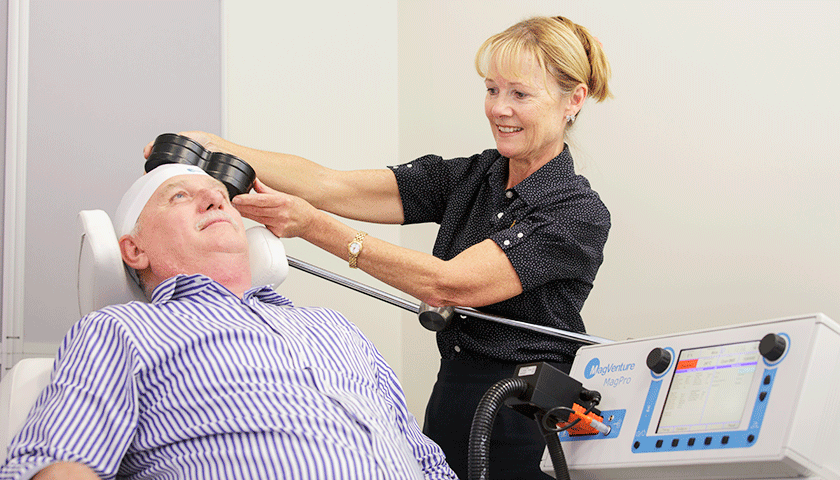- Our services
- Mental health and therapy
- Transcranial magnetic stimulation
Transcranial magnetic stimulation
Transcranial magnetic stimulation (TMS) is a safe, non-invasive procedure for people with mild to moderate depression who aren’t responding to other treatment.

We provide TMS in conjunction with other treatments such as medication and group and individual therapy to help improve your mood, function and overall health and wellbeing.
How does TMS work?
TMS uses highly focused magnetic pulses to fire up neurons in the area of your brain that regulates your mood.
Depression causes areas of your brain to be underactive, such as those which make you happy, relaxed and motivated. It also affects social interaction, memory, emotional stress and learning. TMS targets these areas, which then sends signals to other areas of the brain to get the whole system functioning.
We recommend about 20 to 25 sessions of TMS to help you return to better health after depression.
During your session, you are monitored by a TMS trained health professional and you are able to listen to music, watch a movie or talk to loved ones.
You can be referred by your general practitioner (GP).
What are the benefits?
TMS offers a number of benefits, particularly when used as part of a wider treatment program.
- Non-invasive treatment – nothing enters your body or bloodstream and there are no needles used in TMS. No anesthetic is required.
- People have described TMS as slightly uncomfortable, but not painful.
- TMS can help people who suffer side effects from medication.
- You are awake and alert during the treatment and can go straight to other activities as there is no recovery period required.
You may be interested in
